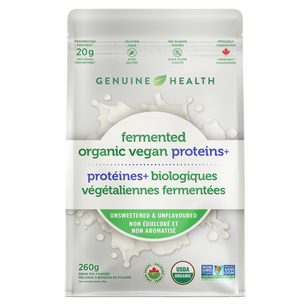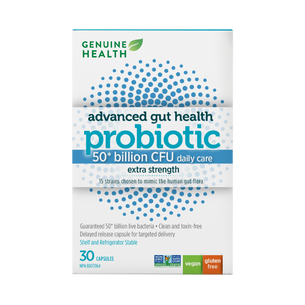The Gut – Allergy Connection

Were you once able to eat a big plate of pasta and have no problem, only to now not be able to stomach it? Was dairy something that you used to enjoy? Do you all of a sudden have a reaction when you eat eggs? If you are suddenly sensitive to any of these foods, your gut may be trying to tell you something.
When we discuss the immune system and its role in allergies, we often forget to acknowledge the important role of the gut. The digestive system houses a whopping 70% of the immune system in the small & large intestines. Due to its formative role in the body, the digestive system is subjected to copious amounts of “wear and tear” daily as it handles, filters and disposes of everything we ingest. Over time and with repeated exposure, the digestive system can understandably become taxed and damaged.
There is one thin layer of cells that separates our digestive system from our bloodstream, which is the most susceptible to damage and inflammation. When even a small area of this thin membrane becomes inflamed, the body forges an immune response causing a cascade of reactions. These reactions can manifest themselves by way of bloating, pain, and various digestive disturbances. If the digestive system is repeatedly exposed to this antigen (i.e. irritant), the immune system will keep sending signals to the area that there is a continued need for help. In very simple terms, this is often how allergies are developed, especially allergies to food or drink.
In order to prevent these allergies from occurring and to treat them once they have caused an immune response, we must look to protect and repair damaged tissue. Replenishing healthy bacteria in the gut is key. We have over three trillion bacteria in our intestines which get killed off daily – due to their own natural life cycle, exposure to food, drink and drugs that kill the bacteria, along with our ingestion of toxins, contaminated water, etc. We must make sure to repopulate that good bacteria to maintain a healthy gut and immune system:
This complete approach to gut health is the best way to support a healthy gut and its bacterial populations. An easy-to-digest fermented protein, along with advanced gut health probiotic and fermented organic gut superfoods+ is a complete supplemental approach that primes, seeds and feeds the gut to support healthy bacteria, which can help with some allergies.
When healthy bacteria are abundant in number, the body can heal inflamed and irritated tissue more rapidly, decreasing the sensitivity of the immune system to foods and other antigens we otherwise wouldn’t and shouldn’t have any problems encountering. This solution can become a bit more complicated when dealing with overt allergic reactions (such as anaphylactic reactions to peanuts and gluten, for example) so when in doubt, make sure to check with your family physician or Naturopathic Doctor to ensure the aforementioned foods and products are right for you.
Information provided by Dr. Katherine Kremblewski, ND is intended to be general in nature, and should not be used as a substitute for a visit with a Naturopathic Doctor or Family Doctor. The advice is intended to offer only a general basis for individuals to discuss their medical condition with their health care provider. Always consult your licensed Naturopathic Doctor or health care provider.
Sources:
Vighi, G et al. “Allergy and the Gastrointestinal System.” Clinical and Experimental Immunology 153.Suppl 1 (2008): 3–6. PMC.
Technical University of Munich (TUM). "Intestinal bacteria influence food allergies: Composition of gut microbiota and immune system are closely interwoven." Science Daily. 7 September 2016.
Molloy, John et al. “The Potential Link between Gut Microbiota and IgE-Mediated Food Allergy in Early Life.” International Journal of Environmental Research and Public Health 10.12 (2013): 7235–7256. PMC.
When we discuss the immune system and its role in allergies, we often forget to acknowledge the important role of the gut. The digestive system houses a whopping 70% of the immune system in the small & large intestines. Due to its formative role in the body, the digestive system is subjected to copious amounts of “wear and tear” daily as it handles, filters and disposes of everything we ingest. Over time and with repeated exposure, the digestive system can understandably become taxed and damaged.
There is one thin layer of cells that separates our digestive system from our bloodstream, which is the most susceptible to damage and inflammation. When even a small area of this thin membrane becomes inflamed, the body forges an immune response causing a cascade of reactions. These reactions can manifest themselves by way of bloating, pain, and various digestive disturbances. If the digestive system is repeatedly exposed to this antigen (i.e. irritant), the immune system will keep sending signals to the area that there is a continued need for help. In very simple terms, this is often how allergies are developed, especially allergies to food or drink.
In order to prevent these allergies from occurring and to treat them once they have caused an immune response, we must look to protect and repair damaged tissue. Replenishing healthy bacteria in the gut is key. We have over three trillion bacteria in our intestines which get killed off daily – due to their own natural life cycle, exposure to food, drink and drugs that kill the bacteria, along with our ingestion of toxins, contaminated water, etc. We must make sure to repopulate that good bacteria to maintain a healthy gut and immune system:
- Being mindful to eat fermented food such as yogurt, kefir, sauerkraut, kimchi, kombucha, as well as fermented supplements such as Genuine Health’s fermented vegan proteins+ and fermented Greek yogurt proteins+ will strengthen gut health and ensure that the good bacteria are being fed properly, allowing them to further protect our immunity. fermented whole body NUTRITION with greens+ is not only fermented, but contains polyphenols, which are a class of phytonutrient that has been shown to act as food for gut bacteria.
- Yogurt does not provide a sufficient concentration of bacteria to replenish the billions that get damaged on a daily basis, so I recommend probiotics in capsule form. advanced gut health probiotic is formulated to deliver up to 10x more viable bacteria right to the gut, in a ratio of Lactobacilli and Bifidobacterium that mimics healthy human gut flora.
- fermented organic gut superfoods+ is not only fermented, but contains polyphenols, which are a class of phytonutrient that has been shown to act as food for gut bacteria and support a healthy gut environment.
This complete approach to gut health is the best way to support a healthy gut and its bacterial populations. An easy-to-digest fermented protein, along with advanced gut health probiotic and fermented organic gut superfoods+ is a complete supplemental approach that primes, seeds and feeds the gut to support healthy bacteria, which can help with some allergies.
When healthy bacteria are abundant in number, the body can heal inflamed and irritated tissue more rapidly, decreasing the sensitivity of the immune system to foods and other antigens we otherwise wouldn’t and shouldn’t have any problems encountering. This solution can become a bit more complicated when dealing with overt allergic reactions (such as anaphylactic reactions to peanuts and gluten, for example) so when in doubt, make sure to check with your family physician or Naturopathic Doctor to ensure the aforementioned foods and products are right for you.
Information provided by Dr. Katherine Kremblewski, ND is intended to be general in nature, and should not be used as a substitute for a visit with a Naturopathic Doctor or Family Doctor. The advice is intended to offer only a general basis for individuals to discuss their medical condition with their health care provider. Always consult your licensed Naturopathic Doctor or health care provider.
Sources:
Vighi, G et al. “Allergy and the Gastrointestinal System.” Clinical and Experimental Immunology 153.Suppl 1 (2008): 3–6. PMC.
Technical University of Munich (TUM). "Intestinal bacteria influence food allergies: Composition of gut microbiota and immune system are closely interwoven." Science Daily. 7 September 2016.
Molloy, John et al. “The Potential Link between Gut Microbiota and IgE-Mediated Food Allergy in Early Life.” International Journal of Environmental Research and Public Health 10.12 (2013): 7235–7256. PMC.



















































